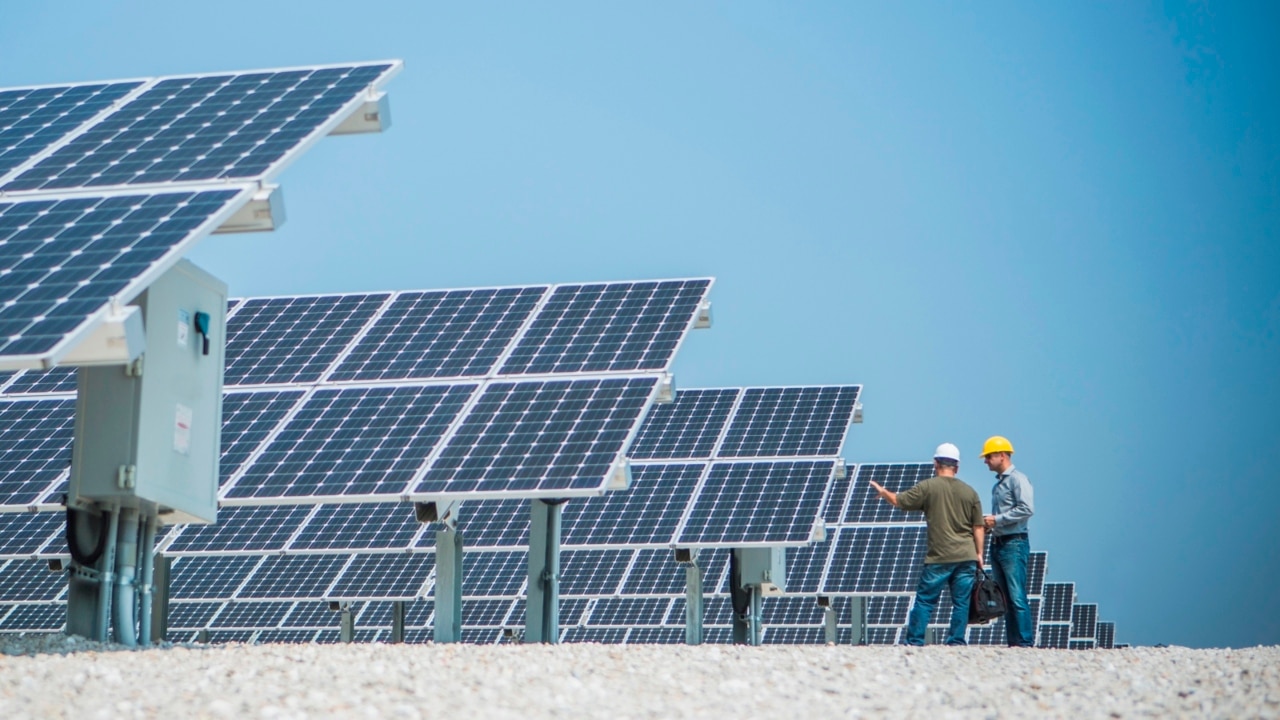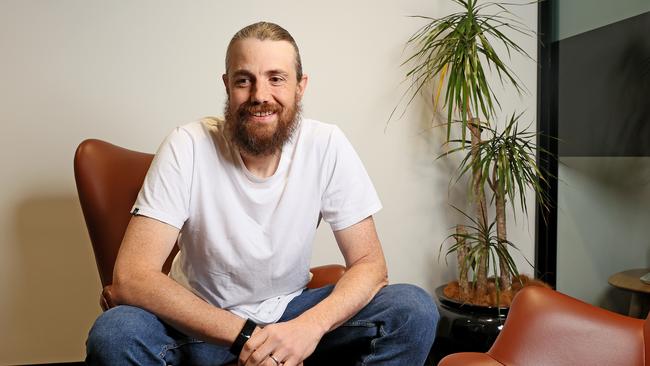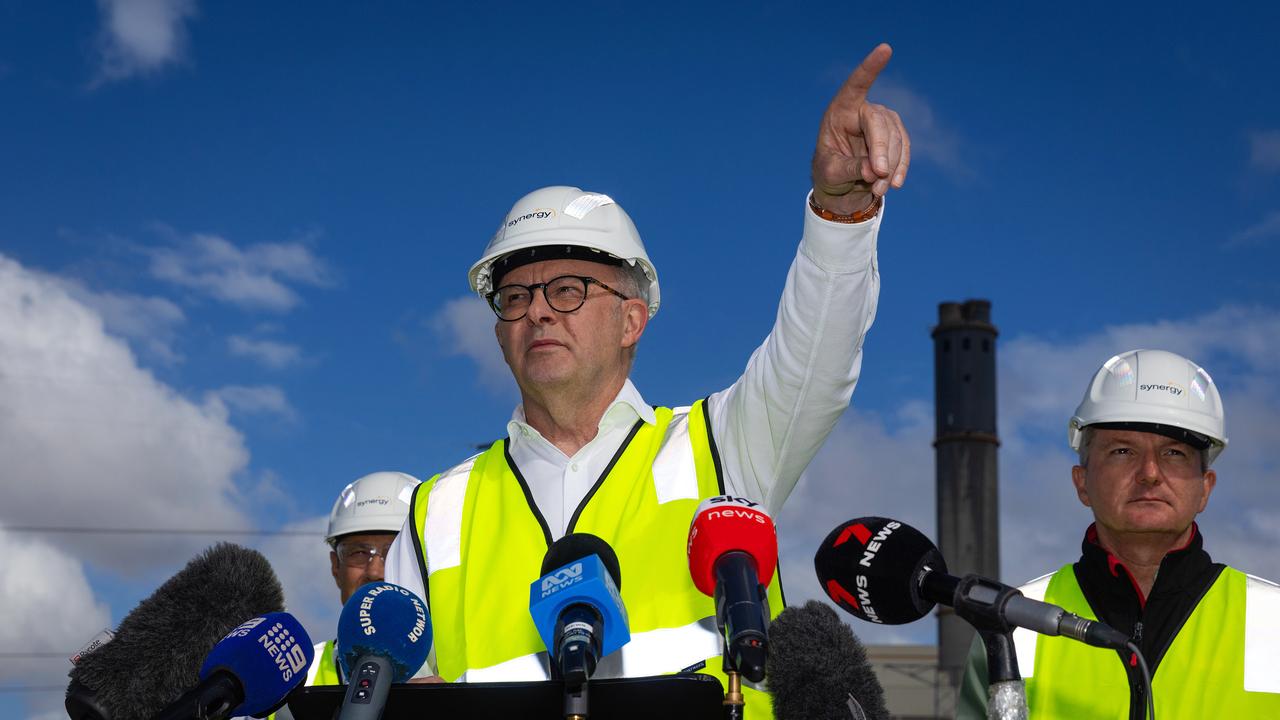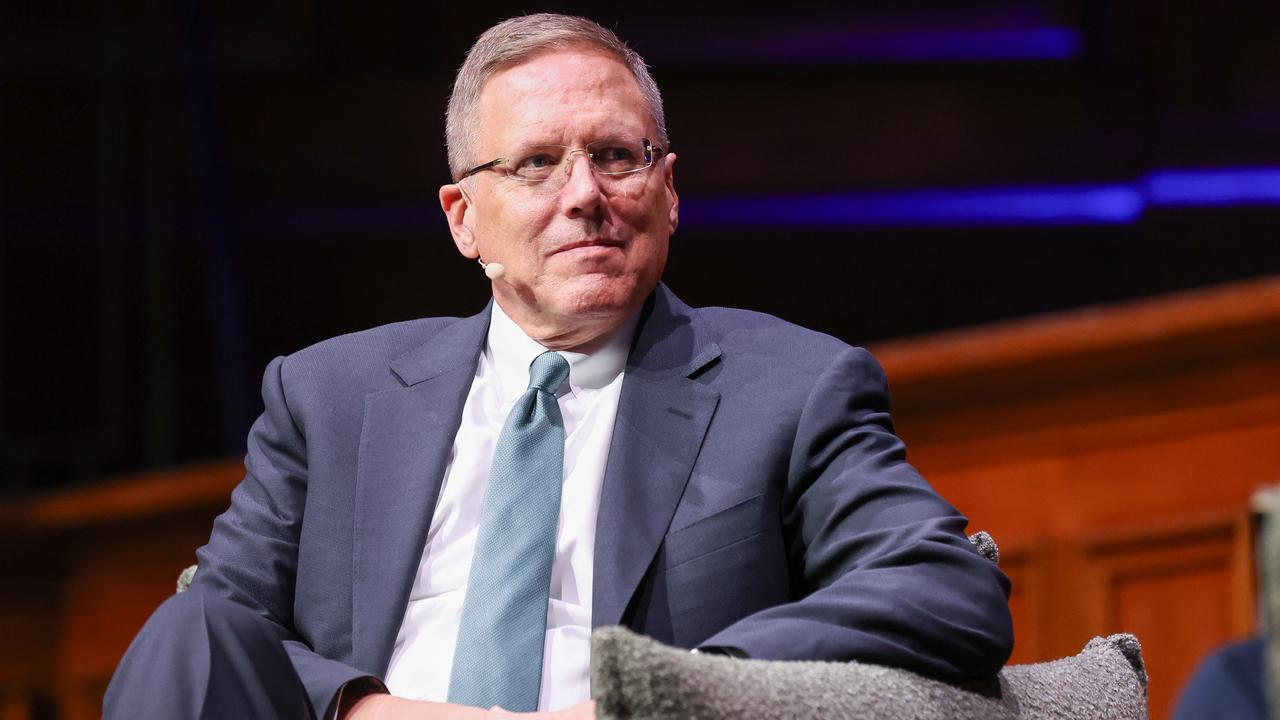Mike Cannon-Brookes wins control of Sun Cable after Forrest pulls out
The Atlassian boss’ Grok Ventures on Friday was confirmed as the winning bid after rival and one-time partner in the project Andrew Forrest withdrew from the process.

Billionaire Mike Cannon-Brookes has prevailed in a fight with Andrew Forrest for control of Australia’s biggest renewable energy project, the $30bn Sun Cable export venture to Singapore.
As revealed by The Australian, the Atlassian co-founder emerged on Thursday as the favourite to win the deal after Dr Forrest withdrew from bidding for control of the project.
Sun Cable was placed into voluntary administration in January after Dr Forrest and Mr Cannon-Brookes clashed over funding, management and strategy of the company.
The voluntary administrators said Mr Cannon-Brookes’ Grok Ventures plans to continue to progress the Australia-Asia Power Link project to a final investment decision with Stage 1 to deliver 900 megawatts of generation into Darwin and 1.8 gigawatts of energy supplies into Singapore.
Grok said it was looking forward to working alongside its investment partners and management to deliver on Sun Cable’s ambitious renewable energy projects.
“A big step in the right direction. We’ve always believed in the possibilities Sun Cable presents in exporting our boundless sunshine, and what it could mean for Australia,” Mr Cannon-Brookes said. “It’s time to stretch our country’s ambition.
“We need to take big swings if we are going to be a renewable energy superpower. So swing we will.”
Grok said it will now pursue customer offtakes agreements in Singapore and Darwin, and will offer further details about the design and development priorities for the project in the coming weeks.

Dr Forrest said his Squadron Energy decided against submitting a binding bid for Sun Cable.
“Squadron Energy decided the capital allocated did not align with Squadron’s strategic goals,” Dr Forrest said.
“We remain unconvinced of the commercial and viability of the Australia-Asia Powerlink but if others believe it can be achieved, we wish them all the best.”
There is widespread scepticism about Sun Cable’s original plan to construct a 4200km undersea link to Singapore, which would be more than five times bigger than the longest submarine link yet proposed – the 767km Viking link between the UK and Denmark.
Energy experts insist such a venture would test engineering capabilities and expose the project to a sovereign risk as it flows near Indonesian territorial waters.
The Sun Cable project had envisaged transmitting 20 gigawatts of power from the world’s largest solar farm near Tennant Creek to Darwin via a 6.4GW, 800km overhead transmission line along with 36-42 gigawatt hours of battery storage. Electricity could then be exported to Singapore via the undersea cable.

Industry sources said they instead expected the project to develop the solar and storage near Darwin and then sell the cheap energy domestically.
The presence of Quinbrook in the winning consortium adds to those suggestions. Quinbrook is one of the world’s largest solar developers.
“With construction well underway on the largest solar storage projects ever undertaken in the US and the UK, it is well positioned to assist Grok to complete the development of what promises to be not only one of the largest renewables projects in Australia, but a project of global significance,” said David Scaysbrook, Australian-based co-founder and managing partner of Quinbrook.
Defeat is, however, a blow to Dr Forrest and his green hydrogen ambitions. Green hydrogen is a major focus of Fortescue Future Industries, and the zero emission advocate had envisaged using Sun Cable to generate large quantities of renewable energy to power the manufacture of the fuel that is in great demand throughout Asia.
In April, Japan set a new ambitious target of boosting supplies of hydrogen to 12 million tonnes by 2040, from its previous goal of 2 million tonnes by 2030.
Dr Forrest earlier this year insisted he would not be too disappointed to lose out on Sun Cable, and his enterprise has rapidly increased its clean energy exposure.







To join the conversation, please log in. Don't have an account? Register
Join the conversation, you are commenting as Logout